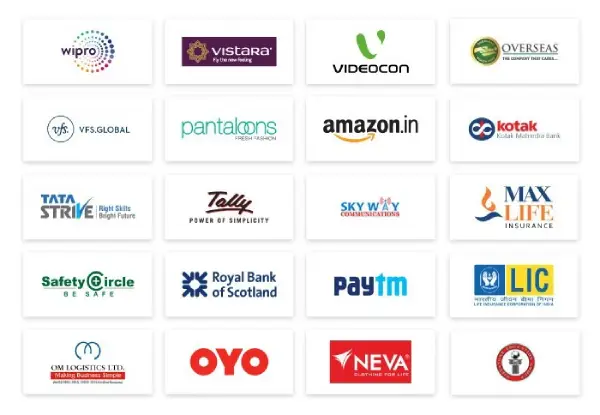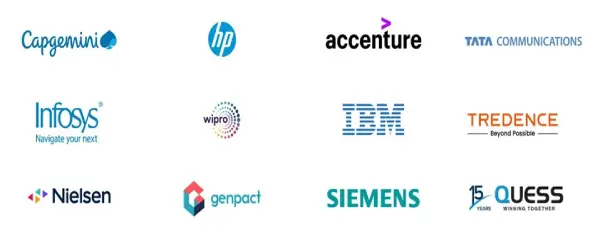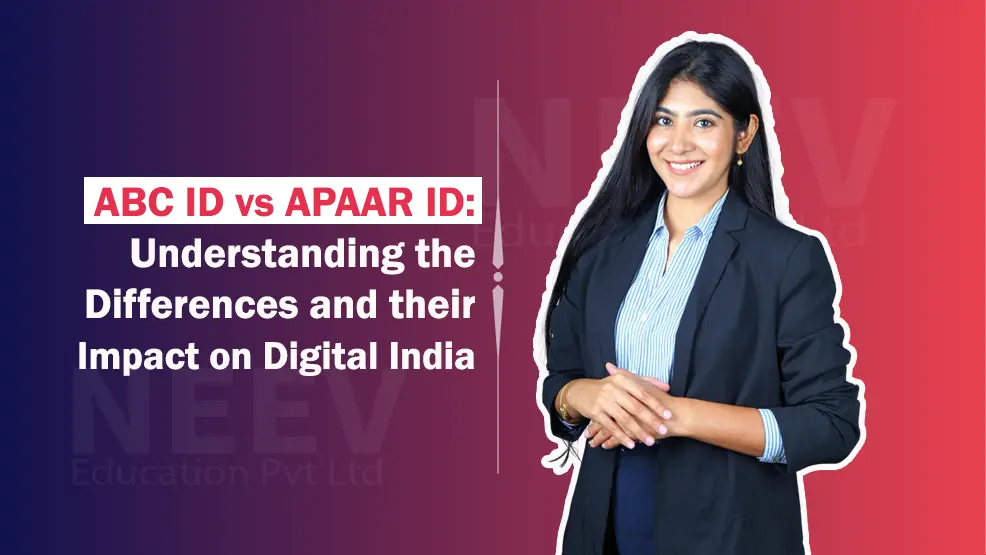




















The Online MCA program with AR and VR consists of a two-year flexible distance learning curriculum providing cutting-edge immersive technological education capabilities. This program provides working students and aspiring tech professionals with advanced knowledge about immersive technologies alongside their practical implementations. The program features necessary topics consisting of 3d modelling along with computer graphics, while also teaching human-computer interaction and UX design in addition to AR/VR development tools and interactive media design.
The digital learning platform supports independent study and provides both virtual interactive sessions and discussion groups, together with digital practical resources. After completing this program, students can seek employment opportunities which extend across gaming, entertainment, educational, healthcare and architectural sectors. The online MCA specialisation connects students with modern technological developments while offering them training to create future-ready AR/VR programs through contemporary programming structures and platforms.

Colleges
Courses
Students
Experience



The Online MCA in AR & VR program merges standard computing curriculum, made up of programming together with data structures,s and software engineering, while simultaneously teaching vital ARVR subjects that include immersive media design, along with game engine programming and 3d modelling and Unity/Unreal development and extended reality applications.
| Course Name | Online MCA in AR & VR |
|---|---|
| Course Duration | 2 Years |
| Course Level | Post-Graduation |
| Mode of Education | Online |
| Eligibility Criteria | The bachelor's degree from a recognized university with 45-50% accumulated marks |
| Admission Process | Online |
| Semester Wise Subjects Details |
Semester I
Semester II
Semester III
Semester IV
|
| Online MCA in AR & VR Programme Fee Range | ₹ 1 Lakh - 2.5 Lakh |
| Starting Salary Range | ₹ 3.6 LPA - 12 LPA |

Students who wish to enrol in Online MCA in AR & VR programs must possess a bachelor's degree from a recognised university in Computer Science, Information Technology, Electronics or an equivalent field. Online MCA in AR & VR requires students to maintain at least 50 percent aggregate marks across their undergraduate academic performance. Candidates must have studied Mathematics either at the 10+2 level or during their graduation. Some MCA program universities put entrance tests with program-specific content as an admission requirement. Few institutions request that potential students demonstrate their English proficiency skills during the admission process. Working people who want to enhance their immersive technology skills can apply through the program's admission process.

To admit students into AR & VR specialisation programs, Indian reputable universities need applicants to succeed in entrance exams, including NIMCET, MAH MCA CET, TANCET or their own MCA entrance tests. The entrance exams direct universities to select students who demonstrate strong mathematics skills combined with logical reasoning capabilities, along with computer awareness and analytical thinking abilities, for immersive technology programs.


Students completing the Online MCA in AR & VR program can pursue rewarding job opportunities in the fields of AR/VR applications and develop 3d models while working on simulations and creating immersive interfaces, along with immersive content materials. The numerous industries, including gaming and defence, along with healthcare and education and retail and real estate, demonstrate a high need for these roles, which provide transformative options to grow and innovate.


The MCA in AR & VR program produces professionals who practice AR/VR application development while earning an average income of ₹6 to ₹10 LPA, as their roles entail specific responsibilities. Seasoned professionals in the AR/VR and immersive space can begin their career as a developer, engineer, designer, or technical artist, yet their starting salaries will depend on their expertise and the organisation they work for, starting from ₹6 to ₹10 LPA.
| Job Profile | Job Description (Responsibility) | Average Salary (INR) |
|---|---|---|
| AR/VR Developer | Design and develop immersive AR and VR applications using engines like Unity or Unreal, with languages like C#, C++, or JavaScript. | ₹7,00,000 - ₹12,00,000 |
| Unity Developer (AR/VR) | Create 3D interactive applications and games using Unity engine, primarily for AR/VR environments. | ₹6,00,000 - ₹10,00,000 |
| 3D Artist / Modeler | Design and build 3D assets, characters, and environments for use in AR/VR experiences. | ₹4,50,000 - ₹9,00,000 |
| XR Designer (AR/VR Interface) | Focus on designing user experiences and interfaces tailored for immersive environments (AR/VR/XR). | ₹6,00,000 - ₹11,00,000 |
| Hologram Interaction Designer | Create interactive holographic experiences using spatial computing devices (e.g., HoloLens). | ₹7,00,000 - ₹12,00,000 |
| Immersive Media Producer | Plan and produce 360° videos, interactive media, and AR/VR storytelling content. | ₹5,00,000 - ₹9,00,000 |


| Top Recruiters |
|---|
| Tata Elxsi |
| Infosys |
| Wipro |
| Tech Mahindra |
| L&T Technology Services |
| Zebra Technologies |
| BYJU’S |
| Imaginate Technologies |
| Simulanis |
| Gamitronics |

Candidates attempting admission to MCA in AR & VR through the online program need to complete multiple compulsory steps. Candidates need to fulfil the admission requirements while confirming the entrance examination demands imposed by the selected university. Students need to complete the digital application form and submit required academic documents and identification documents before successfully securing their seat after a possible interview process and payment of admission fees.
The MCA admission process becomes easier for students because Neev Education provides complete support and individualised guidance throughout their educational journey. The specialised counsellors at Neev, educate students about the curriculum before assisting them in evaluating potential colleges with AR & VR programs to decide on the best educational institution. Neev Supports students in completing their application documents and uploading files while ensuring all deadlines are met. Students receive routine notifications about exam entrances through Neev to avoid missing any vital admission deadlines.
Login to the admission portal by using your credentials shared on registered email id or you can directly login by entering an OTP received on the registered mobile number.
The next step is filling out all the details in the application form such as personal details, educational qualification and other details as required by the University.
Upload all the scanned documents, including high school, intermediate, and Graduation Mark sheets along with the Aadhar card and ABC (Academic Bank Credits) ID.
To finish the application, submit the academic fees online through debit, credit card, Net banking, UPI or you may also opt for a finance option. Interest-free Loan options are also available in which you can pay your fees in easy EMIs.
The University will then verify your documents and send you a confirmation mail regarding your admission, along with the login credentials to access your learning management system (LMS).


| Amity University | ₹5,50,000 - ₹9,00,000 |
| Lovely Professional University | ₹5,00,000 - ₹11,00,000 |
| Manipal University Jaipur | ₹4,80,000 - ₹12,00,000 |
| Manav Rachna University | ₹4,50,000 - ₹9,00,000 |
| Jain University | ₹4,50,000 - ₹8,00,000 |


The Automated Permanent Academic Account Registry (APAAR) ID is a unique student identification system designed to track a student’s educational journey from school to higher education.
| Feature | ABC ID | APAAR ID |
|---|---|---|
| Purpose | Tracks academic credits | Tracks students' entire academic journey |
| Who Can Get It? | College/university students | School/college/University students |
| Key Benefit | Helps in credit transfer & multiple entry-exit | Provides a lifelong academic record along with credit transfer |
| Linked to | UGC & Higher Education | School & College Education |
| Integration | NEP 2020, Higher Education | School Education, Government Schemes |
While the ABC ID allows higher education students to transfer credits and also allows flexible learning, an APAAR ID is a universal student identifier beyond school. These IDs are important for digital education in specific respects.
The ABC ID applies to students going for higher studies, whereby they would need flexibility in completing courses. On the other hand, the APAAR ID is about creating a continuous academic record of primary, secondary, and higher education details for easy tracking of students' academic journeys by the authorities so that they can be assisted timely when needed.
In addition, the APAAR ID serves the purpose of efficiency in resource allocation and targeted policies for educational programs of the government. In contrast, ABC ID will allow students to take interdisciplinary studies and credit-based learning freely.
The introduction of ABC ID and APAAR ID forms the fulcrum of the digital transformation of education in India. Their impact stretches across multiple domains.
These steps have simplified student access to their digital academic records.
ABC ID has been renamed as APAAR ID now, reflecting its updated identity and expanded scope. The introduction of ABC ID and APAAR ID is a game-changer in the education system of India, where students from different levels have the facility of transparency, and have ensured availability and at the same time are not restricted by the immediate time. The one-time introduction is India's Digital India movement and the National Education Policy (NEP) 2020 which is in unison with the vision, which envisages the holistic academic system of the technology-driven environment.
College students now have the leverage to independently seek flexibility, as well as the mechanisms required for multiple entry-exit, and lifelong learning via ABC ID. This paves the way for a smoother and faster progression in the pursuit of their desired education paths. At the same time, APAAR ID functions as a lifelong student identity that reduces the employment of government employees for student tracking, simplification, and also the task of establishing and maintaining an integrated academic record from school to college.
All in all, the two branding strategies of educational digitalization do the magic of reducing paper consumption, minimizing education cheating, and including all the individuals in the digital platform, where educational authorities may review their academic certificates quickly. The learning institutions have brought about a new era in their record-keeping functions and this has helped them to be more accountable to their audiences and also allowed them to be in a better position to make timely adjustments in their educational strategies based on the developments in the field of academics.
When it becomes inevitable for India to become a digital society, then students, parents, and educators have to walk hand-in-hand with the latest technologies that come with it. Not only this but also ABC ID and APAAR ID can enable a paperless induction of students, it can ensure that every educational institution can become digital and can get assistance round the clock. This digital transformation works by schools using digital cards and other digital tools with technological things such as battery life and wireless error correction. All this adds up to the global environment of the internet. India is creating a new digital economy. Get ready to experience new and better AI, enhanced global recognition, and increased data security through blockchain.
More people will become involved in educational technology. Recognize and identify with digital identity and digital citizenship, as well as the capability to borrow the same level of digital knowledge, and the ability to integrate the digital into their education systems.
Yes, ABC ID is highly advisable for all the students. It is very important in the matter of tracing academic credit, and facilitating credit transfer, as well as the better way to develop an academic record system that is student-centric.
No APAAR ID will not supersede ABC ID. APAAR ID has the purpose of differentiating the individual student but ABC ID is needed for tracking and transfer of academic credits in higher education institutions, so it is very important for students pursuing higher studies.
Suppose you lost your ABC ID or APAAR ID. In that case, you will be able to recover it by visiting the respective portals and by Aadhaar verification attached with a record of academics to reclaim it while keeping the credentials intact.
Yes, APAAR ID is available for each student from school to enable the academic performance identification of students.
Yes, ABC ID has been renamed as APAAR ID, reflecting its updated identity and expanded scope.
Currently, these IDs are intended only for use in India. However, it is dependent on future developments that could allow students to use these IDs for credit transfer or higher education opportunities internationally.
[post_image] => ABC-ID-vs-APAAR-ID.webp [post_display_order] => 0 [post_type] => 0 [status] => 2 [feature] => 0 [date_added] => 2025-04-03 18:53:35 [date_updated] => 2025-08-28 15:55:12 [button_1] => [button_2] => [button_1_url] => [pdf] => [form_text] => [form_btn_text] => [post_authors] => Admin [post_dates] => 03-04-2025 ) -->

Students learn to produce interactive teaching environments through AR/VR model development, which appears as a core component of the course.
The AR/VR industry offers positions that include AR Developer, Unity 3d Developer, Simulation Engineer, Technical Artist, XR Content Creator and UX Designer roles.
Both large corporations and startups regularly hire AR/VR professionals for their work on product development and their creation of marketing simulations, together with customer experience solutions.
Absolutely! The program establishes comprehensive expertise in creativity, along with technical aspects of AR/VR development, making it suitable for tech entrepreneurs.
Accredited universities grant worldwide recognition to their online MCA in AR & VR program, which enables students to pursue PhD degrees or research fellowships or MS in immersive technologies.
Best-in-class content by leading faculty and industry leaders in the form of videos, cases and projects, assignments and live sessions